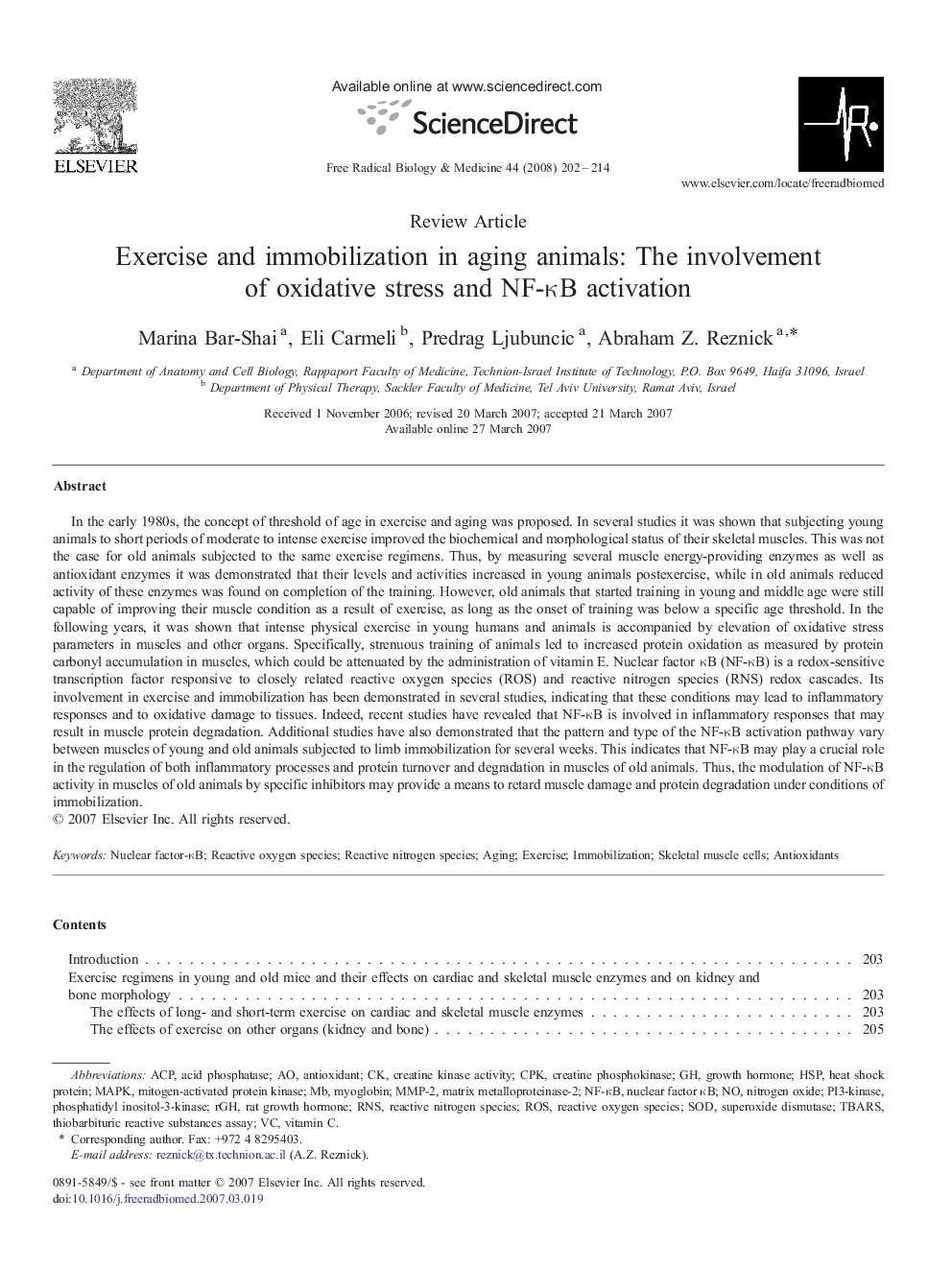| کد مقاله | کد نشریه | سال انتشار | مقاله انگلیسی | نسخه تمام متن |
|---|---|---|---|---|
| 1910348 | 1046766 | 2008 | 13 صفحه PDF | دانلود رایگان |

In the early 1980s, the concept of threshold of age in exercise and aging was proposed. In several studies it was shown that subjecting young animals to short periods of moderate to intense exercise improved the biochemical and morphological status of their skeletal muscles. This was not the case for old animals subjected to the same exercise regimens. Thus, by measuring several muscle energy-providing enzymes as well as antioxidant enzymes it was demonstrated that their levels and activities increased in young animals postexercise, while in old animals reduced activity of these enzymes was found on completion of the training. However, old animals that started training in young and middle age were still capable of improving their muscle condition as a result of exercise, as long as the onset of training was below a specific age threshold. In the following years, it was shown that intense physical exercise in young humans and animals is accompanied by elevation of oxidative stress parameters in muscles and other organs. Specifically, strenuous training of animals led to increased protein oxidation as measured by protein carbonyl accumulation in muscles, which could be attenuated by the administration of vitamin E. Nuclear factor κB (NF-κB) is a redox-sensitive transcription factor responsive to closely related reactive oxygen species (ROS) and reactive nitrogen species (RNS) redox cascades. Its involvement in exercise and immobilization has been demonstrated in several studies, indicating that these conditions may lead to inflammatory responses and to oxidative damage to tissues. Indeed, recent studies have revealed that NF-κB is involved in inflammatory responses that may result in muscle protein degradation. Additional studies have also demonstrated that the pattern and type of the NF-κB activation pathway vary between muscles of young and old animals subjected to limb immobilization for several weeks. This indicates that NF-κB may play a crucial role in the regulation of both inflammatory processes and protein turnover and degradation in muscles of old animals. Thus, the modulation of NF-κB activity in muscles of old animals by specific inhibitors may provide a means to retard muscle damage and protein degradation under conditions of immobilization.
Journal: Free Radical Biology and Medicine - Volume 44, Issue 2, 15 January 2008, Pages 202–214